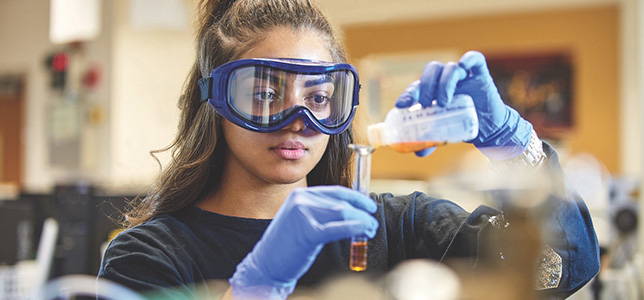John Carroll U Wins NSF Grant to Support STEM Students

PRNewsfoto/John Carroll University
Students working toward degrees in science, technology, engineering or math (STEM) at John Carroll University are getting a boost, thanks to a $640,000 grant from the National Science Foundation. The university aims to "increase the enrollment and graduation rates of academically high-performing students [in STEM subjects] who have demonstrated financial need, particularly among first generation college students and underrepresented minorities," according to a news announcement.
Beginning this fall, the program will provide annually renewable scholarship support to students who meet the university's academic standards in a STEM-related major, including Biology, Computer Science, Data Science, Engineering Physics, Environmental Science and Mathematics, among others. Participants in the program will also have access to a summer bridge program, peer mentoring, shared campus housing, research fellowships, scientific conferences and career development opportunities, the announcement said.
A team of faculty and staff, led by project director Rebecca Drenovsky, professor and chair of John Carroll's Department of Biology, will guide the program's efforts to develop and graduate STEM students, as well as research "educational practices that bolster student success in STEM."
"This grant furthers John Carroll University's dedication to our mission by enhancing access and support for more young people," said Margaret Farrar, dean of the university's College of Arts and Sciences, in a statement, "and it advances our commitment to provide excellent preparation for students pursuing emerging careers in our region, including healthcare and biotechnology."
About the Author
Rhea Kelly is editor in chief for Campus Technology, THE Journal, and Spaces4Learning. She can be reached at [email protected].